Discovery Institute's Blog, page 110
December 8, 2015
Perception and the Cartesian Theater

V.J. Torley has written a thoughtful reply to my recent post about perception. I appreciate his insights, which are substantial, but I disagree with his basic premise. I wish to assure him here that I am not, as the graphic accompanying his post would suggest, barking at the moon.
Torley:
[Egnor] makes a fantastic claim which is foreign to Aristotle's thinking: he asserts that whenever you perceive a distant object, your perception of that object occurs outside your body, rather than inside...
Ediacaran Fossil Highlights Differences with Cambrian Animals
It looks like a three-armed spiral. What is it? It's one of those "enigmatic" organisms that lived before the Cambrian explosion. Named Tribrachidium (Latin for "three arms"), it's a member of the Ediacaran fauna. Not much is known about any of the Ediacarans, but since they lived some 10 million years before the Cambrian, evolutionists have been trying to link them up in some way with the complex animals that appeared later, as described in Stephen Meyer's book Darwin's Doubt.
A new theory...
December 7, 2015
Ecocide "Trial" in The Hague Next Year

Radical environmentalism isn't content with passing laws that regulate our use of the land and resources. No, they want to grant nature "rights" to permit lawsuits that would impede human enterprise and stifle human thriving.
Some want to go further and criminalize human endeavor as a "crime against peace," akin to genocide or ethnic cleansing. This is the "ecocide" movement.
What is ecocide? From my piece on the issue in the Weekly Standard:
Polly Higgins, who recently addressed the United...
A New Book from Michael Denton Is Your Opportunity to Inspire Future Scientists

With his path-breaking book Darwin's Black Box: The Biochemical Challenge to Evolution, biologist Michael Behe is known around the world for helping to launch the intelligent design movement. But what inspired him?
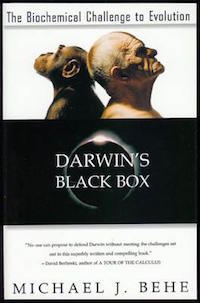
Behe explains, "Through college and graduate school, I was in an atmosphere that just assumed that Darwinian evolution explained biology. I didn't have any reason to doubt it."
But then he read a book that changed his life, and thereby altered the history of science. The book was...
A New Book from Michael Denton Is Your Opportunity to Help Change the Course of Scientific History

With his path-breaking book Darwin's Black Box: The Biochemical Challenge to Evolution, biologist Michael Behe is known around the world for helping to launch the intelligent design movement. But what inspired him?
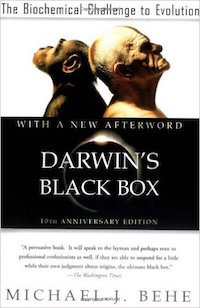
Behe explains, "Through college and graduate school, I was in an atmosphere that just assumed that Darwinian evolution explained biology. I didn't have any reason to doubt it."
But then he read a book that changed his life, and thereby altered the history of science. The book was...
How Do We Know These Artifacts Are Designed if We Don't Know the Designer?

We don't know who made them. We don't know how they were made. We don't know what purpose they served. But we know they were intentionally made by mindful individuals. At least, Live Science never questions the design inference about strange stone structures in Middle Eastern deserts that are shaped like wheels, triangles, and long lines (see the photo gallery). Why is design the obvious inference?
There are hundreds of these structures. They extend over much of the Middle East: Syria, Jorda...
December 6, 2015
In Shadow of Oz, Biologist Wayne Rossiter Critiques Theistic Evolution
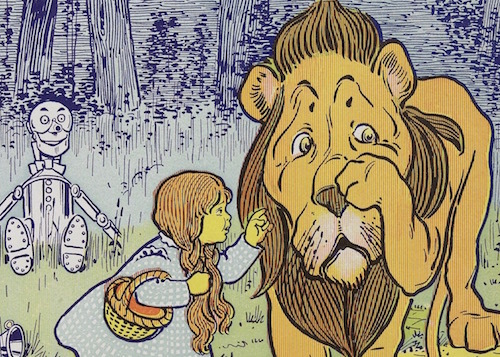
A new book, Shadow of Oz: Theistic Evolution and the Absent God, by Wayne Rossiter, offers a keen scientific, philosophical, and theological critique of theistic evolution. Rossiter, who holds a PhD in biology from Rutgers where he studied ecology and evolution, is an assistant biology professor at Waynesburg University. Because he has interests in both the scientific and the philosophical/theological dimensions of the debate over Darwinian evolution, Shadow of Oz is one of the most comprehe...
December 5, 2015
Breaking Sticks

This is the fourth and final post in a series in which I have examined criticisms from Joe Felsenstein (University of Washington geneticist) and Tom English (Oklahoma City computer scientist) in response to two arguments for intelligent design: specified complexity and conservation of information. Look here for Parts 1, 2, and 3.
A large portion of a post by Tom English, "The Law of Conservation of Information is defunct," is devoted to an example of conservation of information involving bro...
December 4, 2015
The Clever Hans Problem and Research on Animal Cognition
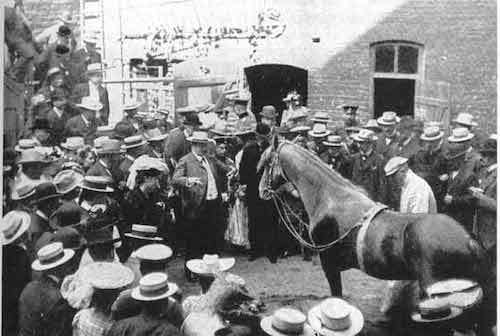
As Denyse O'Leary will likely discuss in her new series "Animal Minds," a number of research studies claim to show that under some circumstances animals are capable of abstract thought. I believe that those conclusions are wrong, and that animals are not capable of abstraction.
Animals think particularly, not abstractly. That is, animals think about particulars (individual things) and about perceptions connected to the particulars, but they are not capable of abstracting universal concepts...
The GUC Bug
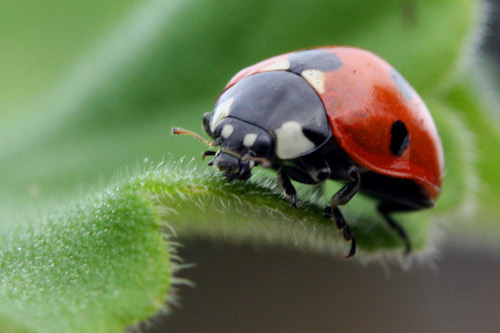
In a series of posts, of which this is the third, I am examining criticisms from Joe Felsenstein (University of Washington geneticist) and Tom English (Oklahoma City computer scientist) in response to two arguments for intelligent design: specified complexity and conservation of information. See here for Parts 1 and 2 in the series.
In my previous post, I reviewed the arguments by William Dembski and Robert Marks in their paper "Life's Conservation Law." I showed that the paper is not based...
Discovery Institute's Blog
- Discovery Institute's profile
- 15 followers




